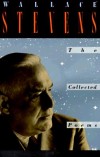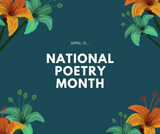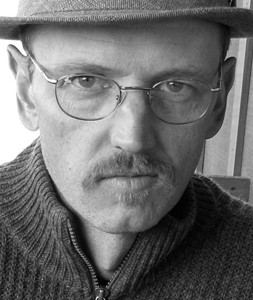 Livingston, Montana poet Michael Earl Craig was educated at the University of Montana, the University of Massachusetts, and the Kentucky Horseshoeing School. He has published three collections of poetry, most recently Thin Kimono, out last year from Wave Books, the highly regarded poetry press in Seattle. There’s no sense of the cookie-cutter in Craig’s poetry tool kit; his poems feature an unusually wide variety of styles, from grounded lyrics concerned with his working world to collage to dream-like pieces filled with surreal imagery.
Livingston, Montana poet Michael Earl Craig was educated at the University of Montana, the University of Massachusetts, and the Kentucky Horseshoeing School. He has published three collections of poetry, most recently Thin Kimono, out last year from Wave Books, the highly regarded poetry press in Seattle. There’s no sense of the cookie-cutter in Craig’s poetry tool kit; his poems feature an unusually wide variety of styles, from grounded lyrics concerned with his working world to collage to dream-like pieces filled with surreal imagery.
He is interviewed by John W. Marshall from Open Books, a poetry-only bookstore in Seattle.
Your biographical material says that you are Certified Journeyman Farrier. This puts you into a subset of one as far as I know, Farrier Poet. Do you know of any others? No I don’t know of any other farriers who are poets, but there probably are some. The main similarity between these vocations—the common general theme—is that each camp thinks the other is ridiculous. My poetry friends think shoeing is quaint/unimaginable (think Society for Creative Anachronism: chainmail, jousting, fiber arts), and my shoeing friends think poetry is quaint/unimaginable (again: chainmail, jousting, fiber arts, etc.).
When I looked over other interviews with authors on the Northwest Book Lovers, I noticed questions about content were common. Heather McHugh once wrote that “a poem is not about about.” If content is not the point of the poem, what is? I can say that for me “content” is quite often a bi-product of the act of writing. Maybe it’s there in the end but it’s the path of the poem that matters most—both to the writer and the reader, I think. Some poems demonstrate this better than others. I recently read John Ashbery’s poem “How Much Longer Will I Be Able to Inhabit the Divine Sepulcher . . .” to a group of poetry students. I love this poem. Not an easy one for “content,” though. People were asking me what it “meant.” It’s like asking what a Jackson Pollock means. I suggested we concentrate on the mood and tone of the poem rather than the “content.” Even if a poem has no immediately obvious content/meaning, it will still impart its tone/mood.
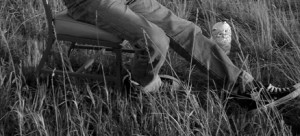 In your poem “Bluebirds” the poet’s job is described as “to be dragged by the ankle / through town /. . ./ the ankle caught up / in the stirrup of a galloping / horse.” I loved this image, its public lack of control. Would you expand on it? Is Thin Kimono a record of your being dragged through town? No I wouldn’t say Thin Kimono is that—a record of me being dragged through town. I don’t know exactly where that line comes from. I do feel that there is a lot of lip service paid to poets and poetry, but that there also exists this thinly veiled hostility toward it, which is actually one of the things I love about poetry. The way someone’s glove-box works in their new Jaguar might be described as “poetry in motion” by someone who has never read a poem in his/her adult life. The idea of poetry is extremely marketable. (Look for the line of women’s clothing and knick-knacks called, simply, “Poetry.”) Actual poetry, however, is almost vile because it has NO APPARENT MARKET VALUE. In this way poetry is inherently offensive. Which again is what attracts most poets.
In your poem “Bluebirds” the poet’s job is described as “to be dragged by the ankle / through town /. . ./ the ankle caught up / in the stirrup of a galloping / horse.” I loved this image, its public lack of control. Would you expand on it? Is Thin Kimono a record of your being dragged through town? No I wouldn’t say Thin Kimono is that—a record of me being dragged through town. I don’t know exactly where that line comes from. I do feel that there is a lot of lip service paid to poets and poetry, but that there also exists this thinly veiled hostility toward it, which is actually one of the things I love about poetry. The way someone’s glove-box works in their new Jaguar might be described as “poetry in motion” by someone who has never read a poem in his/her adult life. The idea of poetry is extremely marketable. (Look for the line of women’s clothing and knick-knacks called, simply, “Poetry.”) Actual poetry, however, is almost vile because it has NO APPARENT MARKET VALUE. In this way poetry is inherently offensive. Which again is what attracts most poets.
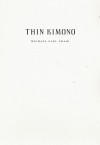 The poem “Diana,” from which the title Thin Kimono comes, reads to me like the scenes and dialogue of a soap opera written out without any language explaining the connections between them. The lines follow one another down the page and so a narrative seems to be taking place. I found it compelling and confounding at once, which is a fine place to be. Was this kind of almost visual flow the intent? I felt the need to put a note in the back of the book about that poem because—well, because I didn’t write any of the lines in that poem. I had come across a novel called Diana, written by a woman named Vida Hurst in 1927. It was in a thrift store and cost two dollars. I stood there and cracked the book open and the first sentence I came across was just amazing. Man, I thought, I might have to steal that. Then I randomly cracked the book again, to some other distant section, and again the first sentence was just the type of sentence I had been trying to write for years! I kept opening this book and reading the first sentence I saw, and every time I had the same feeling. I bought the book, took it home, and repeated this exercise, jumping around, front-to-back-to-middle-to-back-to-front, etc., and just sat there typing out whatever sentence I landed on. I tried to do this very quickly. I typed out about three pages of sentences. Only rarely did I land on a sentence that didn’t perfectly suit me. Later I did a little editing, a little re-organizing, and I added one sentence. I never did read Diana.
The poem “Diana,” from which the title Thin Kimono comes, reads to me like the scenes and dialogue of a soap opera written out without any language explaining the connections between them. The lines follow one another down the page and so a narrative seems to be taking place. I found it compelling and confounding at once, which is a fine place to be. Was this kind of almost visual flow the intent? I felt the need to put a note in the back of the book about that poem because—well, because I didn’t write any of the lines in that poem. I had come across a novel called Diana, written by a woman named Vida Hurst in 1927. It was in a thrift store and cost two dollars. I stood there and cracked the book open and the first sentence I came across was just amazing. Man, I thought, I might have to steal that. Then I randomly cracked the book again, to some other distant section, and again the first sentence was just the type of sentence I had been trying to write for years! I kept opening this book and reading the first sentence I saw, and every time I had the same feeling. I bought the book, took it home, and repeated this exercise, jumping around, front-to-back-to-middle-to-back-to-front, etc., and just sat there typing out whatever sentence I landed on. I tried to do this very quickly. I typed out about three pages of sentences. Only rarely did I land on a sentence that didn’t perfectly suit me. Later I did a little editing, a little re-organizing, and I added one sentence. I never did read Diana.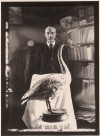 “Just the type of sentence I had been trying to write.” Will you say more about that type of sentence? And/or maybe something about the difficulty of writing that sentence? When a sentence hits you—someone else’s sentence—and it’s perfect, and it’s funny or sad or outrageous or all of the above, and you find yourself wishing you had written it, you can either be envious or you can steal it. I’m not saying I had been, all along, in my own work, literally trying to write those sentences and struggling. I am only saying I immediately recognized something perfect in them.
“Just the type of sentence I had been trying to write.” Will you say more about that type of sentence? And/or maybe something about the difficulty of writing that sentence? When a sentence hits you—someone else’s sentence—and it’s perfect, and it’s funny or sad or outrageous or all of the above, and you find yourself wishing you had written it, you can either be envious or you can steal it. I’m not saying I had been, all along, in my own work, literally trying to write those sentences and struggling. I am only saying I immediately recognized something perfect in them.
What distinguishes a perfect sentence from an imperfect one? I was about to say that the perfect sentence has its balance, but sometimes a lack of balance is what I love about a sentence—its wobble. It’s like a squeaky board in the floor that somehow completes the rest of the floor.
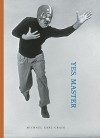 In “Diana” one of the lines, and sentences, now that you mention it, that attracted me was “She was sure a heart of gold must beat beneath that ugly sweater.” Besides having a delightfully comic twist, it is utterly trochaic [interviewer’s note: trochaic means the sentence is entirely composed of stressed syllables followed by unstressed syllables]. Was the rhythm of the writing some of what you found attractive about it? I love that! I had not noticed that. Not that I was aware of, anyway. The rhythms most likely were tugging at me. I also love the somewhat formal language (by today’s standards) that Hurst used. And then there’s the brilliance of her dialogue—“You precious baby idiot!” etc.
In “Diana” one of the lines, and sentences, now that you mention it, that attracted me was “She was sure a heart of gold must beat beneath that ugly sweater.” Besides having a delightfully comic twist, it is utterly trochaic [interviewer’s note: trochaic means the sentence is entirely composed of stressed syllables followed by unstressed syllables]. Was the rhythm of the writing some of what you found attractive about it? I love that! I had not noticed that. Not that I was aware of, anyway. The rhythms most likely were tugging at me. I also love the somewhat formal language (by today’s standards) that Hurst used. And then there’s the brilliance of her dialogue—“You precious baby idiot!” etc.
Let me paraphrase the question Tina asks in your poem “Bluebirds”: What does it take to understand poetry? I know this is a mighty open-ended and mostly goofy question, but it is one that lots of poets have attempted to answer at some point. Care to take it on? Ah, this is a good question. It reminds me of the question, “What does it take to understand toast?” When we come upon toast, it’s like we have this intuitive understanding of it. But why? We are probably familiar with toast, that’s true. But what does toast mean? And how can we understand it? I’m not trying to be cute here. I am asking, seriously.
 I’m glad you used toast as your metaphor. There was period, almost forty years ago now, when I believed I could live off of toasted seven grain bread with peanut butter, honey and banana. That said, let’s move from meaning in poetry (or a poem) to what do you get out of a poem? Eating’s one thing, but reading a poem? Why do that? Let me flesh this out a little —in our bookstore we have literally heard “poetry saved my life” said by people that believe it, metaphorically but ardently. Poetry isn’t for everybody but for some people it works. But what is working, anyway, when it comes to a poem? I don’t know, John. I honestly don’t know what it is about poetry (some poetry) that “works” for/on people. Everything I might say sounds like a cliché: It speaks to them, etc. But maybe that’s it. We want to be spoken to . . . as I just typed that a few lines from a Stevens poem flashed in my head:
I’m glad you used toast as your metaphor. There was period, almost forty years ago now, when I believed I could live off of toasted seven grain bread with peanut butter, honey and banana. That said, let’s move from meaning in poetry (or a poem) to what do you get out of a poem? Eating’s one thing, but reading a poem? Why do that? Let me flesh this out a little —in our bookstore we have literally heard “poetry saved my life” said by people that believe it, metaphorically but ardently. Poetry isn’t for everybody but for some people it works. But what is working, anyway, when it comes to a poem? I don’t know, John. I honestly don’t know what it is about poetry (some poetry) that “works” for/on people. Everything I might say sounds like a cliché: It speaks to them, etc. But maybe that’s it. We want to be spoken to . . . as I just typed that a few lines from a Stevens poem flashed in my head:
It’s the ending of “Yellow Afternoon.” I have always loved this ending, although I can’t say it saved my life, or even helped me in my interpersonal affairs. And it was the image that flashed in my head first, not the lines (I had to go check the lines). The image of the eyeless, mouthless face that “looks at one and speaks.” In the dark!
Anyway, what’s my point here? My favorite poetry (my favorite art in general—film, music, paintings, whatever) trips-up something in my mind; it is always just a few steps out in front, and I am trying to keep up with it. I am asked to make leaps and I don’t always know why. It is slightly confusing but not totally. It functions outside of commercial endeavors, and that is why we let it in, and why it can sometimes “save our lives.”
